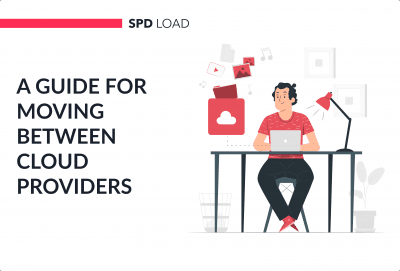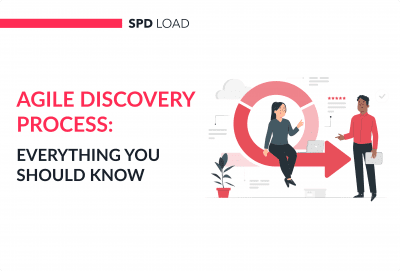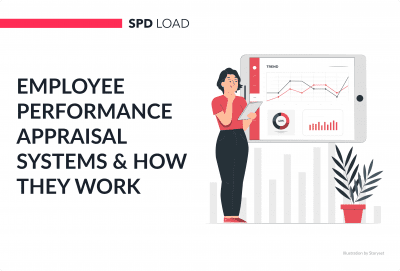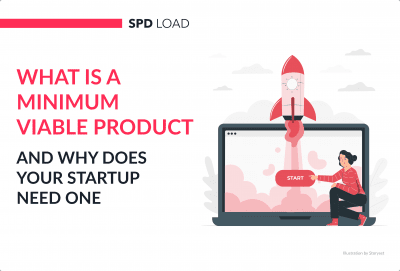Practical Tips to Build Your Startup Brand from Scratch
- Updated: Nov 14, 2024
- 16 min
Crafting a strong brand requires more than just a stylish brand logo or website. This article discusses 14 strategies for building a durable brand in 2025.
We’ll explore how to:
- Construct your brand’s character and personality
- Lock down your positioning and core messages
- Connect with and understand your audience
- Lay the foundation for future expansion
Whether launching a startup or working to boost an existing brand, these strategies will drive meaningful traction if executed with discipline.
You’ll gain the vision, skills, and drive needed to evolve from a newcomer to an established player.
Still looking for that breakthrough concept? Check out ways to find an idea for a unicorn startup.
Let’s dive in!
Start your journey with our expert developers today to bring your startup idea into reality!
What is a Brand Strategy?
A brand strategy is a long-term plan to build a strong, recognizable brand that connects with customers. It defines:
- Who you are (your brand’s voice, personality, values, and mission).
- How you stand out (what makes you different from competitors).
- How you communicate (your messaging, visuals, and tone).
- Who you’re targeting (your ideal customers).
The brand strategy aims to create a memorable brand that people trust and choose over others.
An ideal brand strategy builds trust and loyalty, makes your brand stand out in a crowded market, and helps customers remember and choose you over competitors.
Here are a few examples of brand strategies of popular companies:
| Brand | Brand personality | Key messaging | Visual identity | Target audience | Why it works |
|---|---|---|---|---|---|
| Apple | Innovative, sleek, premium | “Think Different” | Minimalist design, white space | Tech lovers, creative professionals | Stands for simplicity & cutting-edge tech |
| Nike | Empowering, athletic, bold | “Just Do It” | Dynamic, black & white with “swoosh” logo | Athletes & fitness-minded people | Inspires action & confidence |
| Coca-Cola | Happy, nostalgic, universal | “Taste the Feeling” | Classic red & white, festive imagery | Everyone (global appeal) | Connects with emotions & shared moments |
| Dove | Authentic, inclusive, caring | “Real Beauty” | Soft colors, real people (not models) | Women of all ages & body types | Challenges beauty stereotypes |
How is Brand Strategy Different From Brand Marketing?
Brand strategy is the long-term plan for how a brand will be positioned and perceived in the market. It defines the brand’s purpose, values, target audience, tone of voice, and overall direction. For example, Patagonia’s brand strategy focuses on sustainability and environmental activism.
Brand marketing, on the other hand, is how you communicate that strategy to the world. It includes the campaigns, posts on social media platforms, ads, and content used to build awareness and trust. For example, Nike’s “Just Do It” campaign is a marketing strategy effort that reflects its brand strategy of empowerment and performance.
In simple terms:
- Strategy = Who you are.
- Marketing = How you get people to care.
Without a clear brand strategy, marketing efforts can feel scattered or confusing.
4 Key Benefits Of Early Branding For Startups
Startup founders have a lot of daily tasks and worries to juggle — client communication, team management, payroll and documentation handling, and many more.
In such a fast-paced environment, it’s tempting not to spend time on anything that’s not essential to the company’s day-to-day operation, such as branding, and buy an essay or content for marketing.
Having said that, business owners who take their time to create a well-planned branding strategy before or shortly after launching a startup get a massive head start compared to competitors who don’t put conscious effort into brand building. Here’s why.
Branding sets you apart from day one
Branding tools — logo, website, marketing campaigns, help startup managers build companies with “personalities”. Thus, business owners increase the impact of ads, social media posts, and other types of content by making it easier to remember. They leverage the option of creating branding materials, including logos, by using a logo maker online.
Branding helps to understand the market
Good branding starts with knowing your audience, and that means understanding the market you’re in. When you build a brand, you’re not just choosing colors and fonts. You’re learning who your competitors are, what your customers care about, and where your product or service fits in.
Let’s say you’re thinking about restaurant app development. To stand out, you need to know what other restaurant apps are offering, how they position themselves, what prices they charge, and what kind of tone or messaging they use. Do they focus on fast delivery? Table reservations? Loyalty programs? Maybe you notice most apps in your area lack a good user experience or don’t offer pre-ordering options for busy lunch hours. That’s a chance to position your app differently and serve unmet needs.
As a result, company owners who treat branding seriously have a much better overall understanding of the market they operate in and can be confident in their day-to-day choices.
Branding makes a startup appealing to investors
Although VC firms are smart enough not to “judge the book by its cover”, the power of the first impression in the investment field is huge.
That’s why startup owners who know how to design an appealing pitch deck, how to present the vision behind the product, and explain why it’s different from alternatives are an attractive investment target compared to company managers who keep telling investors that “they will cross the marketing bridge when they come to it”.
Branding helps align goals and expectations
When working on branding strategies, startup owners are encouraged to think about scaling and long-term planning.
That’s why they start asking questions like “What can this protect become in the future?”, “What will the public perception of the brand be?”, and “How can we make sure the offer doesn’t get stale over time?”.
The answers are not easy to find — yet after getting there, you’ll walk out of the meeting room with a clear sense of direction and a well-defined list of long-term goals.
A startup with such a strong strategic backbone has exponentially higher odds of surviving market fluctuation than a business where decisions are made on a whim, without a big-picture view.
Excellent branding is a low-cost way to place your startup on the target audience’s attention radar. Since building a high-performing strategy from scratch can get confusing, let’s break this ambitious task into a set of manageable steps your team can bring to life tomorrow.
1. Define Your Purpose
It seems easy enough initially to write down a few lines about the company’s mission, vision, and objectives and label them as the brand’s purpose.
However, without the organization’s crux revolving around the purpose of those statements, they will never have value to them, and would just remain as fluff. For those who are well aware, they should always ask questions such as:
- Why did I start a startup like that in the first place?
- What are the goals I want to achieve in the next 3, 4, or 5 years?
- What are the targets that will help me move another step upward?
Constantly ask yourself such questions to build the purpose of the brand and identify the role that you and your team have to play in scaling it.
2. Build A Diverse Team
Your employees and your technical co-founder are the ones who will either take the start-up to the moon or will inadvertently crash it into the ground. If you are still looking for a tech expert in your team, here is how to find a technical co-founder.
People who come from a variety of different backgrounds usually have a variety of diverse experiences and, as a result, have their own unique opinions.
For example, in startups, the brainstorming that goes into marketing and communications campaigns will result in more creative and innovative ideas with many different insights involved.
In a similar vein, when it comes to assisting clients in any way, it is essential to have a multicultural and diversified sales or customer support team in order to identify relevant solutions.
Antoine Boquen, CEO and Co-Founder of Horizons shared:
“When members of a team feel they are respected and included by the company, not only are they more likely to play to the maximum potential, but they are also more likely to act as ambassadors for the newly launched startups.”
3. Analyze The Competition
Conduct a thorough market research and explore all the successful brands that operate in the same industry. These insights will help you better understand the direction in which the market is moving.
Explore both direct and indirect competitors. Naturally, first and foremost, you should research the big brands within the industry.
You don’t have to copy what your competitors are doing — if you did, how would you stand out? But you should keep an eye on what they’re doing.
Comparing your brand with competitors allows you to see where they’re winning and where they’re failing. Those insights can help you find gaps or opportunities to exploit.
Martin Lassen, Founder & CEO of GrammarHow says:
“A simple yet effective way through which the is research can be done is by creating a spreadsheet that would have the organization’s core competitors, as well as a list of all the variables which would be useful in benchmarking yourself against them.”
4. Know Your Target Audience
When building a brand from scratch, take a look at the entire population and consider who will become your target audience.
Who will become interested? And finally, who will become your loyal customers in the end?
For that, you intend to create a user persona. This can be segmented into various categories, which include, but are not limited to:
- Age
- Gender
- Location
- Interest
- Nature of their role in society, and so on.
Mark Valderrama, Owner of Aquarium Store Depot, adds:
“If your market research can grant you an understanding of how your potential customer’s mind works, it would be easier to relate your products to them.”
Successful identification of the target audience can help with greater conversion levels.
After all, when demand coincides with the brand, that is where the magic happens.
5. Communicate Benefits
Once you have an idea of your potential customers and your competition, you should focus on outlining the key qualities and the benefits of your product.
After all, those are the qualities that make the company and its brand positioning unique.
Abdul Saboor, Full Stack Developer at The Stock Dork says:
“When mentioning the benefits of obtaining your start-up’s product, the benefits are not the features that would be part of the product or service.
Rather, they are the outcomes and experiences through which you would be able to provide value that would improve the lives of your consumers.”
An example of this is Apple.
One of the benefits of using their products has always been the cleanliness of the design and the remarkably easy-to-use interface.
As you are building a brand from scratch, it is important to associate it with the organization’s mission, audience, and industry.
Your brand voice will begin from there, and it will be reflected in how you connect and communicate with your target audience, and how those customers can respond to you.
There are endless ways through which the brand voice can be identified, distinguished, make sense, and most importantly, resonate with your audience.
Some of the possible types of voices include:
1. Informative voice
Focused on facts, education, and neutrality.
Example:
“Struggling with task management? Our app uses time-blocking algorithms proven to increase productivity by 34%. Download now to organize your workflow efficiently.”
Brands like: Wikipedia, Consumer Reports
2. Promotional voice
High-energy, conversion-focused, and benefit-heavy.
Example:
“🚀 Supercharge your productivity TODAY! Say goodbye to chaos — our award-winning app helps you crush deadlines 2x faster. Limited-time 50% OFF! Try it now!”
Brands like: Old Navy, Groupon
3. Friendly & service-oriented voice
Warm, conversational, and empathetic.
Example:
“Hey there! We know juggling tasks is tough. That’s why we built an app that feels like a helpful buddy —reminding you, cheering you on, and making life simpler. Give it a spin!”
Brands like: Mailchimp, Slack
4. Professional voice
Authoritative, polished, and trustworthy.
Example:
“Optimize your productivity with industry-leading task management. Designed for executives and teams, our app integrates seamlessly with your existing tools for peak efficiency.”
Brands like: IBM, McKinsey
5. Playful voice
Fun, quirky, and humorous.
Example:
“Procrastinators, unite! (Tomorrow, obviously.) Until then, let our app kick your productivity into gear—no boring spreadsheets, just unicorns and high-fives. 🦄✋”
Brands like: Innocent Drinks, MoonPie
6. Inspirational voice
Motivational and aspirational.
Example:
“Your goals deserve more than sticky notes. Rise above the noise, focus with purpose, and achieve what matters — starting now.”
Brands like: Nike, Apple
How to choose the voice that matches your brand identity?
Match your voice to:
- Target audience (e.g., Gen Z → playful, CEOs → professional).
- Industry (e.g., healthcare → informative, gaming → playful).
- Brand personality (e.g., “reliable” → professional, “disruptive” → promotional).
Alex Uriarte from 1-800 Injured shared the importance of brand consistency to build brand awareness:
“A voice that changes itself, again and again, will confuse its customers. Maintaining its tone would help the customers to easily associate themselves with it and can help the startup become a recognizable force on multiple channels.”
6. Live Your Brand Values
As a founder building a brand from scratch, you are the face of your brand. Your personal brand and your startup should feel closely aligned, not like a persona you switch on only for investor meetings or client calls.
Alex Savy, Co-Founder, and Editor-in-Chief of Comfynorth says:
“Your confidence in explaining and supporting your brand should be second nature to you. Every detail should exude the purpose of your brand.”
That means your everyday decisions, from how you communicate online to how you lead your team, should reflect your brand’s values.
When people interact with you, they should get a clear sense of what your business stands for. Living your brand values helps build trust and consistency — two key pillars of a strong personal brand.
7. Craft A Brand Story
As a start-up brand building your business in the world, you have a story to tell yout target market.
The customers who are willing to buy your products and services will be interested in knowing what makes you who you are.
A powerful brand story connects emotionally with your audience, builds trust, and sets you apart from competitors. To make yours stand out, you need a distinct brand voice, a unique tone and personality that reflects your values and resonates with your customers.
A compelling narrative follows this framework:
- The challenge: What problem does your audience face?
- The solution: How does your brand solve it?
- The transformation: What positive change do you bring?
Veronica Miller, Digital Marketing & Growth Director at VPNoverview, says:
“By building your startup, you are crafting a story that can be referred to over time.With your successes and your struggles, the customers would want to be a part of the journey where they see how the company is in process of creating success in the long run.”
8. Create Visual Brand Kit
A brand style guide is one of the most exciting parts of your brand-building process and is important when it comes to the visuals of your storytelling.
The brand assets include your brand logo design, brand colors, typography, imagery style, etc. 
Kenny Kline, President & Financial Lead at BarBend says:
“The purpose of the logo and the tagline is that it is going to follow through with everything connected to your start-up business.
It’s the strongest form of visual recognition and interpretation, and ensuring a strong brand identity means you’ll need to incorporate certain elements.
Namely, the style and placement of the logo, the color palette, the type of font and icon used, the style of the image, and elements from the web that would better integrate the brand logo.”
From concept to creation – launch your marketplace with SPDLoad!
9. Optimize Online Experiences
One of the most important steps for any business, especially a startup, is to build a user-friendly website. It’s often the first place people go to learn about your brand and decide whether to take action.
However, this is all the more important for a startup as it would allow your consumers to learn about the business and help to act when they are ready.
Sumit Bansal, Founder, and CEO of TrumpExcel says:
“Your website needs to not only just be attractive but should be able to connect the prospective customer to your brand from the moment you reach the site.”
That connection also depends on how well your site works. It should be fast, responsive, and mobile-friendly, so users have a smooth experience no matter what device they’re on.
10. Market Everywhere
A strong brand presence requires a multi-channel approach. Below is a breakdown of the most effective branding and marketing strategies, along with pro tips to maximize impact:
Channel | Why it matters | Pro tips for startups |
|---|---|---|
| SEO & content marketing | Builds organic traffic, establishes authority, and nurtures long-term trust. | – Focus on long-tail keywords and problem-solving content. – Use blog posts, guides, and videos to educate, not just sell. |
| Social media marketing | Engages target audiences, enhances brand identity, and drives viral reach. | – Pick 2-3 platforms where your audience is active. – Use user-generated content (UGC) and polls to boost interaction. |
| Email marketing | High ROI; nurtures leads and retains customers. | – Segment your list for personalized campaigns. – Mix promotional emails with value-driven content (e.g., tips, industry news). |
| Influencer marketing | Leverages trust from niche experts to amplify credibility. | – Partner with micro-influencers (10K–50K followers) for higher engagement. |
| Paid ads (PPC) | Delivers immediate traffic and conversions. | – Start with low-budget A/B tests on Google Ads or Meta. – Retarget website visitors. |
| Community building | Creates loyal advocates and fosters word-of-mouth growth. | – Host webinars, AMAs, or Discord/Slack groups. – Reward engagement (e.g., exclusive perks). |
| PR & media outreach | Boosts credibility through third-party validation. | – Pitch unique angles (founder stories, data studies) to journalists. |
| Video marketing | Increases engagement; preferred by algorithms (YouTube, TikTok, Reels). | – Repurpose long-form content into short clips. – Show behind-the-scenes (BTS) footage. |
| Podcast sponsorships | Reaches niche audiences in an intimate, trusted format. | – Sponsor or guest on podcasts aligned with your ideal customer. |
| Offline/experiential | Builds memorable connections (e.g., pop-up events, trade shows). | – Use QR codes to bridge offline → online traffic. |
11. Fund Strategically
Some startups can begin inconspicuously from a single room, whereas others would cost you money in the millions.
However, regardless of the situation, it is important to realize that for a business startup being grown from scratch, it is necessary to have adequate capital, which would help the organization to successfully get itself off the ground.
It should always be remembered that the cost of doing business is much higher than what people think it ought to be, and hence, they become underfunded.
Matt Weidle, Business Development Manager at Buyer’s Guide says:
“Remember to consider the banks as a last resort.
Since your business is still starting up from scratch, the banks would be hesitant to lend you anything because you do not have any assets or collateral.
Or they may charge you exorbitant fees in the guise of dissuading you from going forwards.”
So, what now?
Remember, there are always investors. They can come in the form of:
- Family
- Friends
- Angel investors and
- Venture Capitalists
While it depends on which industry your business brand lies in, there are opportunities to secure funding regardless.
As long as you can present your startup in a way that would pique the interest of the investors, there is a good probability that you will be able to secure the funding you desire.
12. Get Finances In Order
While you are focused on building a brand from scratch, it is important to focus on other aspects of your business as well. These include setting up accounting systems and taxes, and choosing the right business structure.
Forming an LLC and having a dedicated business bank account for your business will help you separate personal and business finances, track transactions, and manage your finances more efficiently.
Joe Troyer, CEO & Growth Advisor of ReviewGrower says:
“There are many other steps that need to be taken to fulfill your accounting obligations to the business.
Not includes steps such as opening a bank account, choosing the right bank, understanding your startup’s accounting, finance, and reporting responsibilities by recording your financial transactions, creating monthly and annual reports, and hiring the right accounting staff to handle the numerical aspects of the business.
Failure to do so can lead to a loss of lots of time, and money, and can even lead the organization towards legal persecution.”
13. Lock Down Your Intellectual Property (IP)
Your startup’s most valuable assets might not be physical — they might be your ideas, branding, technology, or creative work. That’s why protecting your intellectual property (IP) is critical from day one.
Josh Tyler, CEO & Founder of Go2Tutors shares
“Your startup may be working towards an idea, service, or even a creation that has been sparked by the creativity of your dream.
However, it is possible that there would be a threat to those ideas from theft, mimicry, and manipulation.
Hence, it is equally important to protect your IP as a business as it is protecting your tangible assets from physical harm.”
Startups move fast, building products, launching campaigns, and pitching to investors. But in the rush, many overlook securing their intellectual property until it’s too late. This can lead to serious consequences, such as losing your competitive edge, legal battles, or even being blocked from using your own brand name or tech. 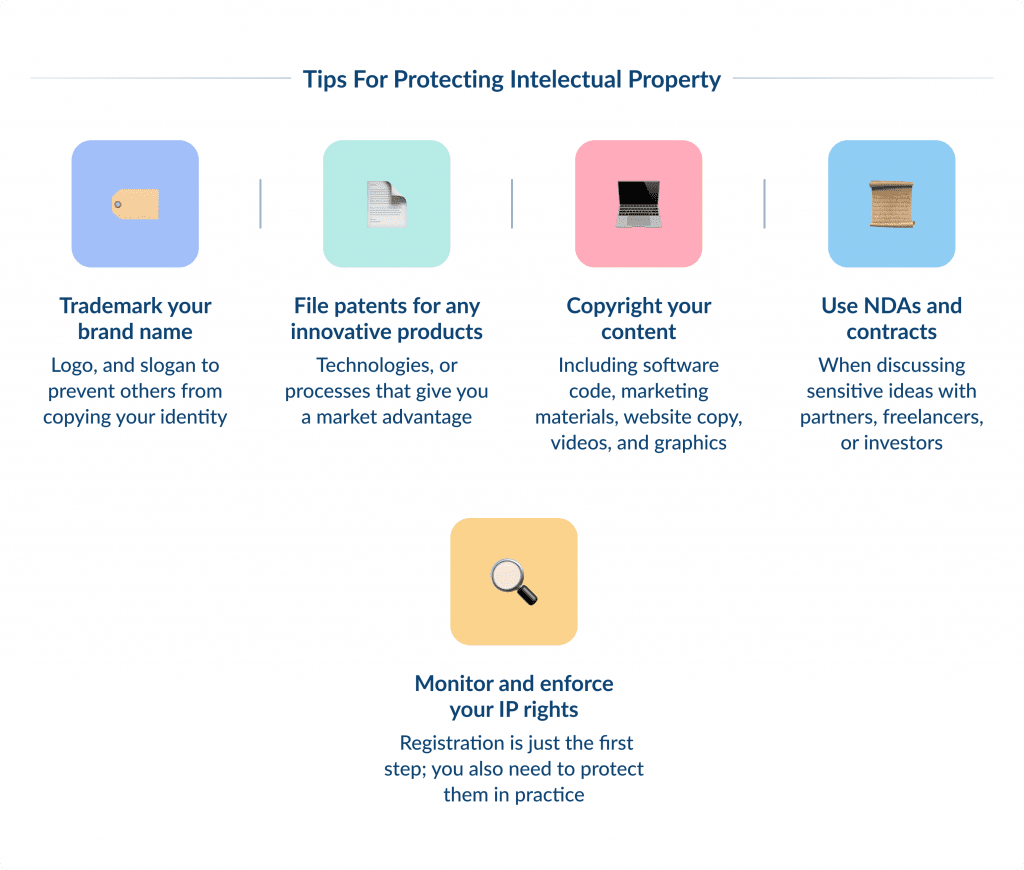
14. Don’t Be Afraid To Get Help
Many startup founders believe they have to wear every hat. From product development and creating brand messaging to legal and finance. But trying to do everything on your own can stretch you thin and slow your growth. Seeking help doesn’t mean you’re failing — it means you’re building your brand identity smarter.
Finally, Myles Robinson, Digital Marketing Expert at LoanCorp says:
“For many entrepreneurs starting from scratch, there’s a common assumption that only they know how to turn their vision into a successful startup.
That’s not the best way to move forward. You’re not expected to be experienced in every area, and that’s where professional help comes in.”
Here’s where seeking support can make a big difference:
- Legal experts can help secure your brand and protect your IP.
- Business coaches can guide you in refining your strategy, building a personal brand, and scaling effectively.
- Marketing professionals can position your startup, shape messaging, and manage multi-channel campaigns.
- Product or UX specialists can improve user experience, development workflows, and tech scalability.
You can either outsource specific functions or bring in in-house talent. The right choice depends on your budget and long-term goals. What matters most is staying involved. When working with experts, you should still lead with your vision, align your team, and actively participate in key decisions.
That way, you’re not just handing things off — you’re learning, growing, and steering your startup toward sustainable success with the right people by your side.
Geared Up For Lift-Off
Brand building is a challenging but rewarding journey. You now have the brand building strategies to architect a brand that breaks through the noise.
At SpdLoad, we specialize in high-impact product design and development, turning your brand’s promise into a tangible, category-defining experience. We can kick off our collaboration with product discovery, where we identify hidden opportunities and refine them into digital products engineered for:
- Instant brand recognition
- Unmatched user loyalty
- Market leadership
Let’s connect to transform your vision into an era-defining reality.




